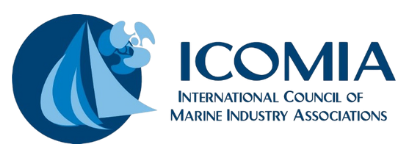Under the Act for Preventing Collisions at Sea, there are rules for the navigation and indication for every vessel. They include a rule that forbids the engine-equipped vessels that are less than 20m in length to interfere other vessels navigation in narrow channels.
RRG Country: Japan
Australia Belgium Canada Cyprus Czech Republic Denmark Estonia Finland France Germany Greece Hong Kong Hungary Ireland Italy Japan Netherlands New Zealand Norway Poland Portugal Singapore South Africa Spain Sweden Switzerland Türkiye United Kingdom USA website@icomia.org
-
Japan – Marinas and Harbours
There are technical standards for harbours concerning the construction of marinas. Under the Ports and Harbours Act, restrictions are imposed on each vessel for the sake of traffic safety and order in harbours.
-
Japan – Boat Licensing and Skippers Certificates
Under the Domestic Law, those who operate any boat or ship of less than 20 gross tons (or any pleasure boat less than 24m in length) are obliged to obtain drivers licences. There are 3 categories of drivers licences. 16 years old and over can get the 2nd grade and PWC licences and 18 years old and over can get the 1st grads licence. No licence is required for drivers using under 3m length boat and 1.5kW engine power.
-
Japan – Design, Construction and Compliance Requirements of Boats and Components
① Under the Domestic Law, there are rules and regulations on the structure, equipment, etc. of the boats and ships of less than 20 gross tons by types — ships, sailboats and other vessels.
② Under the Domestic Law, those who own any boat or ship of less than 20 gross tons are obliged to periodically undergo mandatory inspections in order to check the structure, equipment, etc. of the boat or ship if the vessel is used for navigation -
Japan – Environment
① Under the Domestic Law, the boats and ships of less than 100 gross tons are required to discharge the bilge during navigation and after processing the oil to reduce its level to 15ppm or below.
② Under the International Convention for the Prevention of Pollution from Ships (MARPOL) Annex VI, the NOx emission regulation has been in force since May, 2005 for the diesel engines of which output is more than 130kW. ③The Japan Marine Industry Association (JMIA) established a self-regulation to reduce the marine engine exhaust gas in stages, which has been implemented from the 2000 models onward. The 2006 models cleared the 2006 target (equivalent to EPA 2006 regulatory value). The self-regulation will continue to be implemented till fiscal 2010. From the 2011 models onward, a secondary self-regulation on the marine engine exhaust gas (equivalent to EPA secondary regulatory value) will be implemented.
④ For PWC equipment noise, a self-regulation has been implemented in stages to reduce the acceleration noise since 1999 and a secondary self-regulation under ISO14509 Measurement Method will be in place in 2010. Illegal modification of the noise systems is checked and controlled during periodic inspections.
⑤ It is required that the leisure fishing boats of which capacity is 10-99 individuals be equipped with a holding tank as toilet bowl equipment in certain water areas,starting from 2000.
⑥ JMIA established an FRP vessel recycling system, started applying it in certain areas in 2005 and on a fully nationwide scale in fiscal 2008. But this recycle system is not mandated to boat owners. -
Japan – Registration
Under the Domestic Law, the pleasure boats and ships of less than 20 gross tons are required to register the type of ships, port of registry, size, hull identification number, etc.
-
Japan – Product Liability
The Product Liability Law (PL Law) has been in force since July 1, 1995 and the Consumer Safety Act has been in force since 2009. Under these laws, it is required that any accidents be notified to the national government as soon as they are confirmed. JMIA has the toll-free number to get a consultation.
-
Japan – Safety Equipment
Under the Domestic Law, the engine-equipped vessels of less than 20 gross tons are required to be equipped with the legal equipment, including habitation, drainage, mooring, lifesaving and fire fighting equipment, and navigation devices.
-
Japan – Zero Emission Zones
No restriction zones
